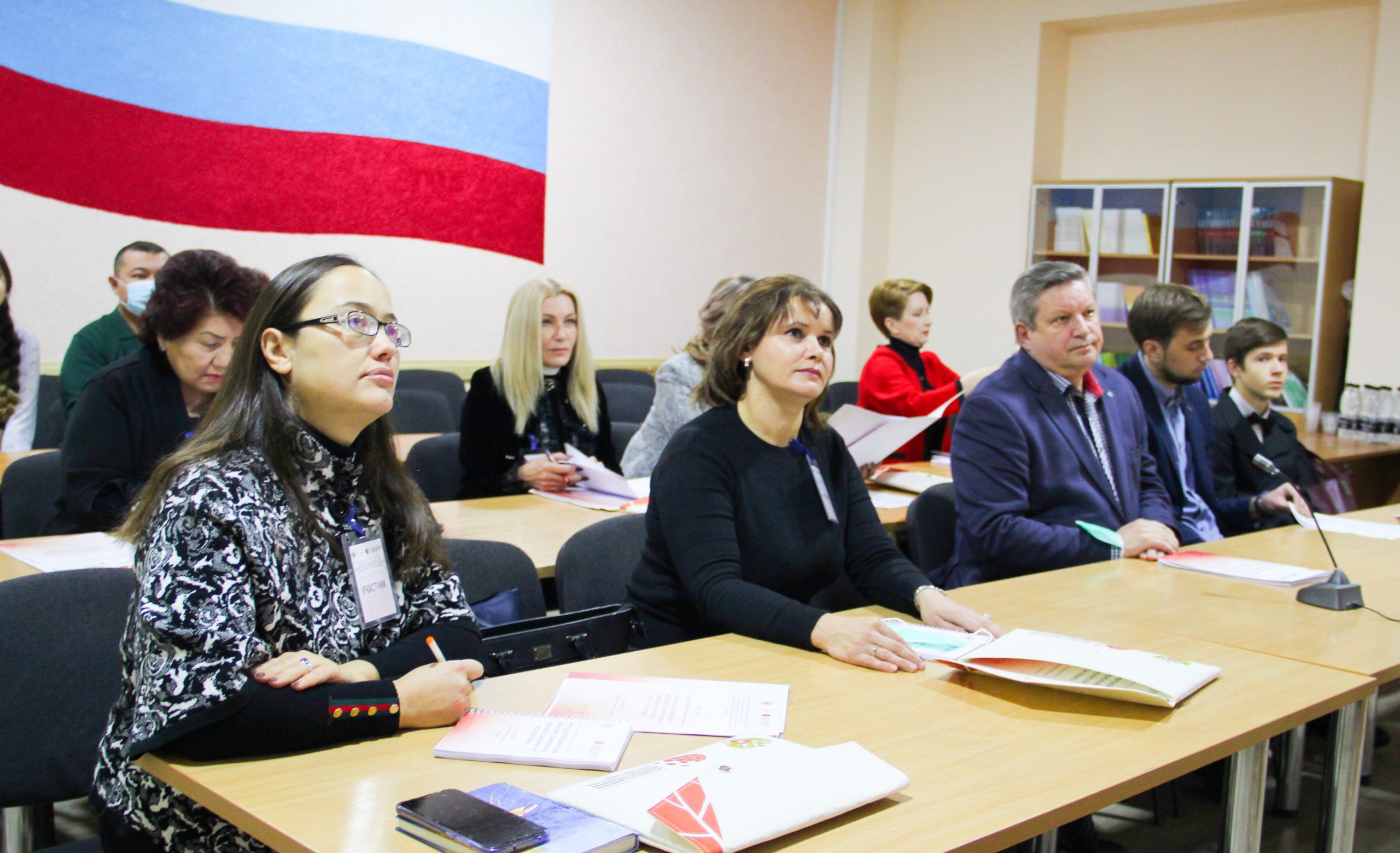On November 25, Bishkek, Kyrgyzstan, hosted the International Pedagogical Forum Methodology of Digital Didactics: Modern Approaches to Teaching and Learning in Russian language. The Forum has been organized by the MCU’s Institute of Lifelong Learning and Russian Centre for Science and Culture in Bishkek. The Forum aimed at sharing experience and uniting efforts to improve the quality of teaching the Russian language.
MCU’s First Vice-Rector Professor Elena Gevorkyan delivered a speech, opening the Forum.
Victor Nefyodov, Director of Rossotrudnichestvo Representative Office in the Kyrgyz Republic, underlined that the pandemic had critically influenced the learning process, and it would be beneficial for all the participants to share their experiences.
More than 300 philologists and language teachers (276 online participants and 35 offline speakers) from 23 countries took part in the Forum. Their presentations raised a wide range of questions relating to teaching and learning the Russian language. Natalia Get’manenko, Charles University, discussed social and economic issues as well as emotional and motivational issues of distance learning of Russian. Maya Myrzabekova, Social Sciences University of Ankara, considered virtual city and museum tours as an efficient tool to contribute to the students’ awareness of the Russian language, culture, and history. Wojciech Walat, University of Rzeszów, revealed the pros and cons of distance learning on the three levels: social, cultural, and didactic.
The plenary session of the Forum was followed by the thematic sections by the MCU teaching staff. Professor Vadim Grinshkun and Professor Olga Zaslavskaya coordinated the section which concerned the relevant issues of the methodology of digital teaching. Professor Galina Lyovina and Professor Galina Dugina moderated the discussion of special aspects of teaching Russian as a foreign language in the digital era.
Additionally, the tutors of the MCU’s Institute of Foreign Languages presented the workshops on modern tools for teaching the Russian language. Professor Irina Makarova discussed iSpring, Russia-designed software for distance learning, as an efficient means to increase the students’ motivation to learn Russian. Professor Natalia Mukhina observed the training of the sociocultural competence in students through idioms and proverbs.
In conclusion, the participants highly appreciated the Forum’s level of organization and productivity.

